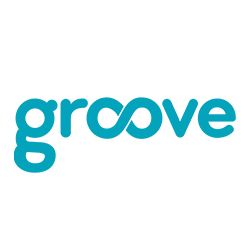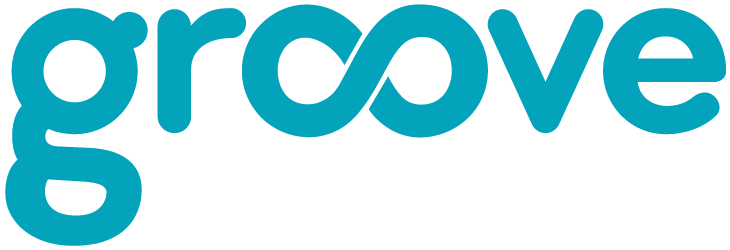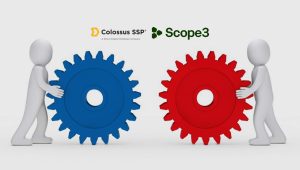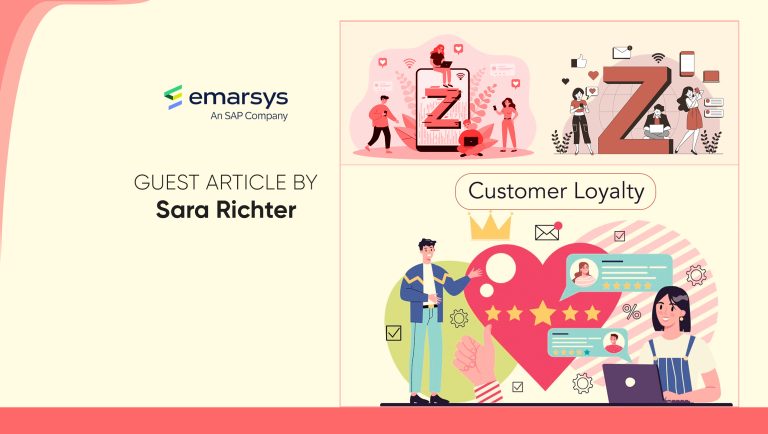


On Marketing Technology
MTS: Tell us about your role and how you got here. What inspired you to join a sales engagement platform?
I am the co-founder and CEO of Groove.co. Before founding Groove, I was managing sales teams at Google. I worked with some of the best and brightest folks in the industry. I learned a lot during this time and had a great team that was ambitious and driven. Though my team had a go-getter attitude, I remember looking around the office at the end of the day and seeing the expressions on their faces as they were doing data entry and sending emails. That’s not what they wanted to be doing which got me thinking about how we could ease this part of the job.
Eventually, I started conversations with Alex and Austin, my fellow co-founders of Groove, about finding a way to bring smart technology to the sales world. We wanted to help everyone in a role that touched sales, including reps, ops, managers, and leadership. After 5 years at Google, we decided it was time for a new challenge. And that’s how Groove got its start.
We’ve been working on Groove for several years now, and feel lucky and humbled by some of the customers we serve, including Google, Slack, Uber and many others. We’ve made great strides in our first few years, and we still work hard everyday to find new ways to provide value to our customers.
MTS: How should B2B businesses build an efficient sales tech platform for multi-step campaign automation?
The key is to think through your requirements and understand what kind of platform will best serve your needs. For example, selling to large businesses will have drastically different needs than selling to local restaurants. This will impact which medium (phone, email, text, etc.) is most effective when communicating with prospects as well as other attributes needed to be successful in the market. After you have laid out the requirements, you can find a holistic solution that works best for your needs.
MTS: What are the major challenges for sales leaders in adopting transformational changes across their organization?
Change is hard and can be especially hard for reps who have had success in the past. As people establish routines, it becomes difficult to try to change their work style. Another challenge is that many sales organizations are on a monthly or quarterly quota. This means as soon as one month closes, reps are immediately back on a sprint to sell. When you are focused on short-term results it becomes difficult to find a time to invest in long-term change. My advice is to find a solution that integrates with their current work style while still providing with a lot of value.
MTS: How should brands determine the baseline to implement sales automation tools to navigate complex customer engagements with ease?
A good starting point is to look at the points where you feel you are not getting the results you want. Having a sales automation tool will allow sales teams to scale leads more efficiently so they know what to focus on. Also, as soon as deals begin to touch many people and departments, it will be important to have a sales automation tool to ensure you are getting the best results.
MTS: How do you distinguish between “Customer Engagement” and “User Experience” for marketing and sales teams? What analytics should sales leaders focus on to achieve these seamlessly?
It’s a balancing act to ensure that you’re engaging with customers on a regular basis while still providing them with a positive experience. In my opinion, if you’re able to provide a customer with a solution, you should be engaging with them until they are able to see the value your solution can provide as well. Many sales leaders monitor high-level metrics including the number of accounts a rep is working on at one time or prospect reply rate. While these metrics can provide insight, it’s important to make sure that reps are truly engaging with the prospects they are reaching out to.
MTS: What startups are you watching/keen on right now?
I’m most interested in business software, so it’s exciting to see all the great companies being built right now. One company I am keeping my eye on is Gusto, which focuses removing some of the pain points around managing human resource services. I also admire Slack, and how they are completely transforming internal company communication. They’re helping companies be more transparent while making it far easier to collaborate. We use it at Groove and it’s been a great way for our remote employees to connect with the employees based at our headquarters.
MTS: What tools does your marketing stack consist of in 2017?
We have a marketing automation solution, an account based marketing platform and attribution tracking software. I’m most excited about Terminus for account-based marketing and Bizible for attribution tracking. Both of these solutions help organizations spend marketing money efficiently and effectively.
MTS: Would you tell us about your standout digital campaign?
The most impressive part of our digital campaign is how targeted we are. We try to only market to companies we feel Groove can provide the most value to and focus on them.
MTS: How do you prepare for an AI-centric world as a business leader?
Business leaders can prepare by examining where you can implement AI to augment current systems. AI is still evolving, but there are solutions that already exist that can assist your team. Starting to leverage AI in some of these areas will allow you to become familiar with where the technology will provide the most value to your organization.
This is How I Work
MTS: What is one word that best describes how you work?
Structured
MTS: What apps/software/tools can’t you live without?
Slack, Uber, Groove, and Gsuite
MTS: What’s your smartest work-related shortcut or productivity hack?
Zero inbox. Processing all emails in batches and instantly take action on the ones that should be completed or schedule the ones that can be completed at a later date.
MTS: What are you currently reading? (What do you read, and how do you consume information?)
I am currently reading Principles by Ray Dalio. I love biographies and other non-fiction books. I read everything on my kindle or listen to books through Audible.
MTS: What’s the best advice you’ve ever received?
Focus on fewer things. It is so easy to say yes to projects/goals/opportunities, but you always end up spreading your time too thin and that distracts you from the few things that will help you accomplish your big goal.
MTS: Tag the one person in the industry whose answers to these questions you would love to read.
Russ Heddleston from Docsend
MTS: Thank you Chris! That was fun and hope to see you back on MarTech Series soon.
Before founding Groove, I worked in a variety of sales and management roles at Google. Specialties: Entrepreneurship, Business Development, Sales, Online Marketing, Software as a Service, Google Products, CRM Software

Groove is the leading all-in-one sales engagement platform. We’re here to give sales teams the tools to focus on what they do best: Providing value to prospects and generating revenue for their company. Our goal is to change the way salespeople work so they can be more productive and love their jobs. We power industry leading sales teams around the world, including Prezi, Asana, HotSchedules, and many more.
The MTS Martech Interview Series is a fun Q&A style chat which we really enjoy doing with martech leaders. With inspiration from Lifehacker’s How I work interviews, the MarTech Series Interviews follows a two part format On Marketing Technology, and This Is How I Work. The format was chosen because when we decided to start an interview series with the biggest and brightest minds in martech – we wanted to get insight into two areas … one – their ideas on marketing tech and two – insights into the philosophy and methods that make these leaders tick.























